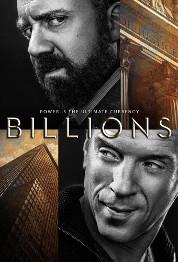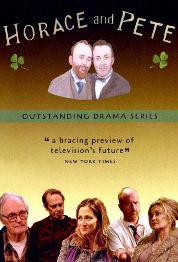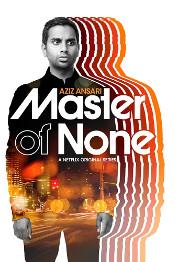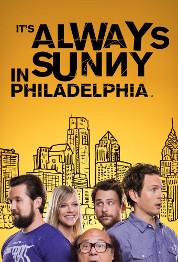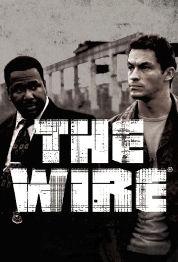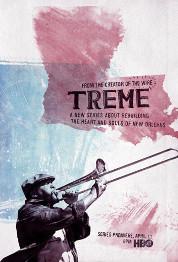Sujet n°16269 créé le 15/01/2009 à 23:20 par Fresh Prince - Vu 3031900 fois par 44405 utilisateurs
Je voulais absolument poster une critique du film Up in the air (malheureusement pas de moi, je n'ai pas un tel talent), de Michael Goldfarb, de la BBC :

Phew... That was a close one. We, the social we, have avoided another great depression. Yes, the recession was severe, but we are out of it. 0.1% growth-out-of-it". This economic shock only served to underline the great differences between the 1930s and now. Heck, between the early 90s and now. There is a social safety net that has cushioned the worst of it for those who've lost jobs or homes. The reason for being made redundant, laid off, fired, riffed, canned, downsized have changed as well. Once upon a time, a business went bust and everybody lost their jobs.In these withe-color times, managers bring in consultants, the names of the condemned are agreed "Look for the spot. I damn him", and the managers carry on. In my case, my manager got a pay rise and a * bonus for successfully meeting a budget target that was wholly dependent on firing me.Yes, dear listener, twenty years into my career as a journalist, at a point where my experience was valuable in ways that cannot be monetized, I was laid off. The bitterness lingers nearly five years after the event. I felt the burn all over again when I recently watched the George Clooney film Up in the air. The film, oscar-nominated in all the main creative categories, including "best picture", tells the story of a consultant, played by Clooney, brought into businesses specifically to tell people they are fired. To add * similitude, in the film's first scene, director Jason Reitman hired people who had been made redundant in real life to play people getting the bad news from Clooney. You can tell these people are not actors because in reenacting the experience, there is a pain in their eyes that no actor could hope to recreate. But that's not the reason I burned with rage again watching the film.Up in the air is really not about those unfortunate folks who have suffered *to death in life of losing a steady job. No, it's that their experience is merely the launchpad for a romantic comedy. * one with edge, the edge being Clooney's titanic existential loneliness. Reitman spends most of the film building our sympathies for Clooney. When he tells people he has just fired that "Anybody who ever built an empire or changed the world sat where you are, right now. And it's because they sat there they were able to do it", we laugh at his *call and almost agree.But the *pressure is this: at the end of the film, after Clooney has dropped his guard and fallen in love and been rejected by someone every bit as cold as himself, the chorus of real-life folks are brought back. In quick sound bites, they give life-affirming testimony to the power of love and family for getting them through. "It's not about money", says one person. Sure... Another says "When I wake up in the morning and I look at my wife, that gives me a sense of purpose". Yeah, buddy... Well, when I wake up in the morning and when I wake up at 2:30 a.m, I look at my wife and my beautiful daughter, and it's blind panick about how I'm going to take care of them that gives me purpose. Anyway... The audience feels bad for Clooney and actually, okay about the folks who've been laid off! After all, they have love! And money can't buy you that!The film is mendacious and meretricious but crafted to the highest standards. I understand its sucess. In hard times, we need good films. And it got me thinking about another difference between the 1930s and today. The films that Hollywood made about the depression. Not only the dramas, but the entertainments. The received wisdom on Hollywood films to the depression was that they were mostly escapism. Busby Berkeley's pictures. "We're in the money"! Or Fred Astaire, in Ginger Rogers, in evening attire, gliding from one gilted set up to another. And of course, the screwball comedies. There are two in particular that kept hovering in my brain. Both of them dealt explicitely with economic cast-offs. My Man Godfrey and Sullivan's Travels.The set up of the first film is a bunch of young, spoiled, rich adults in New York on a party scavenger hunt. And the last thing they have to bring back to the Waldorf Hotel is a "forgotten man", Franklin Roosevelt's term for the unemployed and homeless. There is a hobo camp underneath the 59th Street bridge where these guys congregate. And that's where two rich sisters find a forgotten man named Godfrey. The younger of the two manages to persuade him to help her win the contest. The secret here, is that Godfrey is actually from the same social class. But fallen on hard times. And little sister is too ditsy to recognize that underneath his grubby clothes and unkept appearance. Sullivan's Travels is about a successful Hollywood comedy director who wants to make a "socially relevant drama" about the unemployed. The studio, of course, wants him to do another comedy. He makes several unsuccessful attempts to go undercover and live like a hobo. Eventually, he succeeds, and when he thinks he has enough material, he heads back for Hollywood. But, and this is where it gets good, he gets arrested and ends up in a prison work camp, living the hard life for real. If it doesn't sound funny, believe me, it is.And here is the big difference between these two 1930s classics and Up in the air: Neither of them takes a patronizing attitude to the unemployed. The pompous misconceptions of their heroes are gently, amusingly but relentlessly skewered. That's the core of the entertainment. The underlying message of Up in the air is that the guys who do the dirty work in business, the firing, really deserve our sympathy.I puzzled over the reasons for the difference between then and now. And all I could come up with is this: In the 1930s, the human cost of the economic crisis was a daily encounter, even for the wealthiest. Today, instead of homeless camps under bridges, there are job centers and subsidized housing and television to keep our Godfreys occupied indoors. Out of sight and mind. It's so difficult to imagine their lives. And so, Up in the air doesn't.

J'ai trouvé ça dans l'émission Art and Ideas, que vous pouvez écouter ici.

Le transcript, je l'ai fait manuellement, d'où l'absence de quelques mots ou les doutes sur certains (indiqués par *). Si vous pouvez compléter, remplir, corrgier... n'hésitez pas !

Et je ne m'y connais pas franchement en copyright, mais il me semble que je respecte celui qui s'applique à leurs podcasts, en ne faisant que transcripter. Ça devrait être bon, du coup.

*édité à 19:25 le 05/03/2010

tenia a dit :
Un sacré craquage du slip, le 2, avec tous ses Gremlins mutants. A se tordre de rire, assurément.
Un sacré craquage du slip, le 2, avec tous ses Gremlins mutants. A se tordre de rire, assurément.

--
1/3 de pulco, 1/2 d'eau et le reste de limo...
1/3 de pulco, 1/2 d'eau et le reste de limo...

spaces a dit :
tenia a dit :
Un sacré craquage du slip, le 2, avec tous ses Gremlins mutants. A se tordre de rire, assurément.
Un sacré craquage du slip, le 2, avec tous ses Gremlins mutants. A se tordre de rire, assurément.

J'étais très sérieux. Gremlins 2 est un gros délire portnawak (le Gremlins "classe" continue de me faire mourir de rire, comme le pourrissage de la séance de Blanche Neige, par exemple) et c'est à pisser de rire.

--
"To be is to do"-Socrate; "To do is to be"-Sartre; "Do Be Do Be Do"-Sinatra;
Yippie ki yai, coffeemaker !
"To be is to do"-Socrate; "To do is to be"-Sartre; "Do Be Do Be Do"-Sinatra;
Yippie ki yai, coffeemaker !

ricorod a dit :
Dans la série "je fais un remake inutile et je vous emmerde" : "Police Academy" et "Pet Sematary".
Dans la série "je fais un remake inutile et je vous emmerde" : "Police Academy" et "Pet Sematary".

--
je parles pas au cons sa les instruits
je parles pas au cons sa les instruits

Soit j'ai pas compris le film soit tout ce que j'attendais s'est finalement terminé dans un ensemble de rien, une attente en suspends et une fin aussi interrogative qu'inutile. Mais j'ai peut-être rien compris.

--
Si être normal est d'usage, cela revient à abandonner toute chance de progrès. Qui veut être normal ?
Si être normal est d'usage, cela revient à abandonner toute chance de progrès. Qui veut être normal ?

Baje a dit :
Soit j'ai pas compris le film soit tout ce que j'attendais s'est finalement terminé dans un ensemble de rien, une attente en suspends et une fin aussi interrogative qu'inutile. Mais j'ai peut-être rien compris.
Soit j'ai pas compris le film soit tout ce que j'attendais s'est finalement terminé dans un ensemble de rien, une attente en suspends et une fin aussi interrogative qu'inutile. Mais j'ai peut-être rien compris.

--
"To be is to do"-Socrate; "To do is to be"-Sartre; "Do Be Do Be Do"-Sinatra;
Yippie ki yai, coffeemaker !
"To be is to do"-Socrate; "To do is to be"-Sartre; "Do Be Do Be Do"-Sinatra;
Yippie ki yai, coffeemaker !

Fresh Prince a dit :
Funny Games, et c'est tout.
Funny Games, et c'est tout.

Caché, c'est excellent aussi. Benny's Video, 71 fragments, Le 7e continent, c'est pas rien non plus.Mais je voulais juste dire qu'il est pas super accessible, le plus souvent.Caché, à la 3e ou 4e vision, je ratais encore des trucs.

--
"To be is to do"-Socrate; "To do is to be"-Sartre; "Do Be Do Be Do"-Sinatra;
Yippie ki yai, coffeemaker !
"To be is to do"-Socrate; "To do is to be"-Sartre; "Do Be Do Be Do"-Sinatra;
Yippie ki yai, coffeemaker !

Fresh Prince a dit :
Non. Funny Games, et c'est tout.
Non. Funny Games, et c'est tout.

--
"To be is to do"-Socrate; "To do is to be"-Sartre; "Do Be Do Be Do"-Sinatra;
Yippie ki yai, coffeemaker !
"To be is to do"-Socrate; "To do is to be"-Sartre; "Do Be Do Be Do"-Sinatra;
Yippie ki yai, coffeemaker !

Blade Runner Director's Cut : je me demande encore pourquoi je l'avais pas vu plus tôt. J'ai beaucoup aimé. De la SF bien sombre, bien crade, un Harrison Ford excellent, un final magnifique et une musique superbe. Bref, faut que je me le refasse en blu-ray :)

Pour continuer avec Ridley Scott, je me refais Gladiator dans la soirée mais en version longue blu-ray. Et j'ai aussi Dune version longue qui m'attend bientôt.

Liste des sujets \ Les derniers films que vous avez vus.
L'envoi de messages anonymes est désactivé. Veuillez vous connecter pour poster un message :





 Retour liste des sujets
Retour liste des sujets





![[x]](https://www.moviepropking.com/GREMLINS_2_THE_NEW_BATCH-3.jpg)








